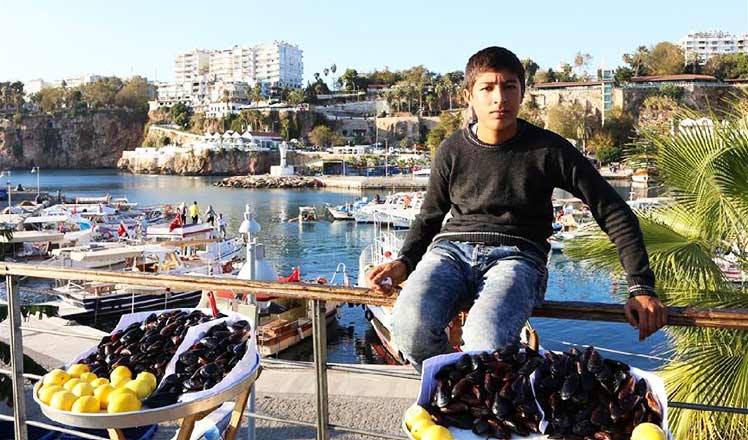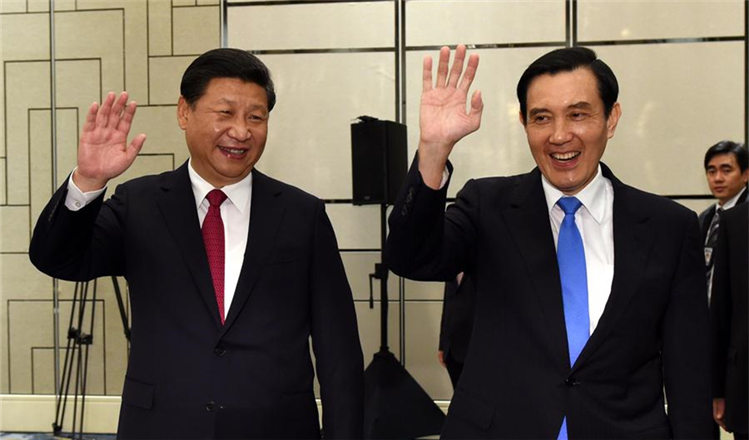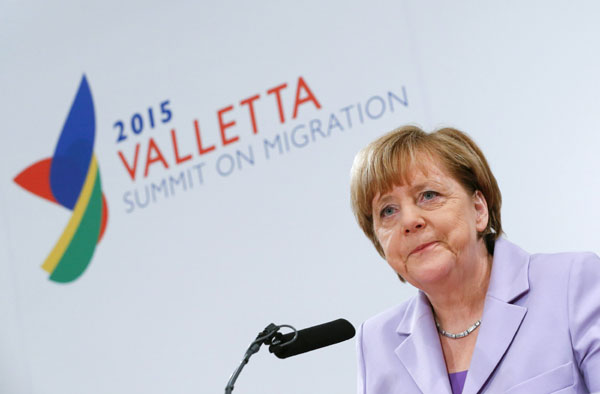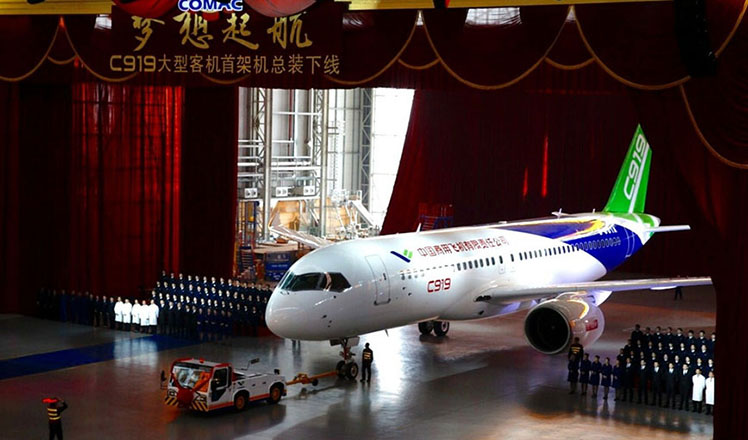Valletta summit enhances political will to solve migration crisis amid concerns about EU consolidation
Updated: 2015-11-13 14:43
(Xinhua)
|
||||||||
VALLETTA -- An international summit on migration that concluded Thursday in the Maltese capital of Valletta has helped enhance the political will to solve the migration crisis amid concerns that the Schengen Treaty that allows free movement may fall apart.
The Valletta summit on Wednesday and Thursday brought together about 63 European and African heads of state and government, as well as representatives of international and regional organizations.
The unprecedented engagement has helped increase political will on tackling the migration crisis, according to Professor Stephen Calleya, director of Mediterranean Academy of Diplomatic Studies at the University of Malta.
However, EU leaders expressed their concerns about the Schengen agreement as Sweden reintroduced border controls and Slovenia built a razor wire fence.
Speaking at the end of an informal European Union summit in Valletta, European Council President Donald Tusk said that the Schengen Treaty, which allows free movement, was under threat and that time was running out.
"We need to regain control of the external border as a precondition for the European migration policy," the former Polish prime minister said.
To protect the Schengen agreement, Tusk said effective implementation of the rules is needed, but he understood that the Dublin rules, which oblige migrants to request asylum in the first EU country they arrive in, were unfavorable to some countries in the current influx of migrants.
Maltese Prime Minister Joseph Muscat hailed the summit as a success, but also stressed that changes were needed in the Schengen rules to safeguard the free movement of people but also ensure that migrants who moved under the burden-sharing mechanism did not simply profit from the current rules to then move to whichever EU country they wanted.
At the summit, European Commission President Jean-Claude Juncker launched an emergency trust fund for providing stability and addressing root causes of irregular migration and displaced people in Africa.
The fund will be made up of 1.8 billion euros (about $1.93 billion) from the EU budget and the European Development Fund, to be complemented by contributions from EU member states and other donors.
The trust fund is expected to benefit a wide range of countries across Africa that encompass the major African migration routes to Europe. The countries are mainly located in the Sahel region, Lake Chad area, the Horn of Africa and North Africa.

 Veterans Day marked across the United States
Veterans Day marked across the United States
 Antalya: Beautiful place where G20 will be held
Antalya: Beautiful place where G20 will be held
 Interesting trends revealed by Singles Day
Interesting trends revealed by Singles Day
 10 delicious soups you can't miss in cold winter days
10 delicious soups you can't miss in cold winter days
 Xi-Ma meeting lauded in US
Xi-Ma meeting lauded in US
 Kunming's parade float: set in stone
Kunming's parade float: set in stone
 All-nighters pulled for Single's Day shopping festival
All-nighters pulled for Single's Day shopping festival
 Victoria's Secret Fashion Show
Victoria's Secret Fashion Show
Most Viewed
Editor's Picks

|

|

|

|

|

|
Today's Top News
Obama, Netanyahu at White House seek to mend US-Israel ties
China, not Canada, is top US trade partner
Tu first Chinese to win Nobel Prize in Medicine
Huntsman says Sino-US relationship needs common goals
Xi pledges $2 billion to help developing countries
Young people from US look forward to Xi's state visit: Survey
US to accept more refugees than planned
Li calls on State-owned firms to tap more global markets
US Weekly

|

|







